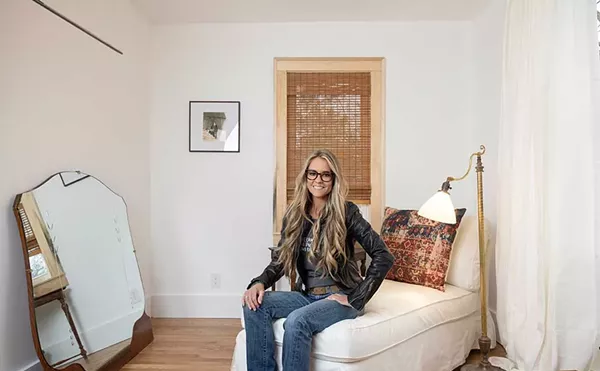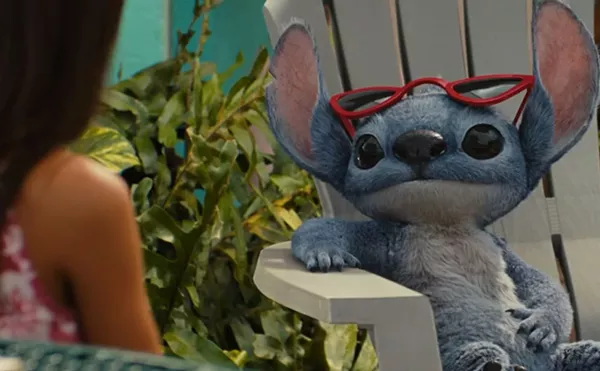
Audio By Carbonatix
[
{
"name": "GPT - Leaderboard - Inline - Content",
"component": "35519556",
"insertPoint": "5th",
"startingPoint": "3",
"requiredCountToDisplay": "3",
"maxInsertions": 100,
"adList": [
{
"adPreset": "LeaderboardInline"
}
]
}
]
Set in Japan in the early ’50s, Yasujiro Ozu’s Tokyo Story tells the story of an elderly couple who make a trip to the big city to visit their grown children. The children are ostensibly glad to see them but also bothered by the way the parents are interrupting their lives. They feel that they have to find things for the old folks to do and at one point send them away to an inappropriate spa, where carousing young people keep them awake all night. Finally the parents go home, and when the mother becomes ill all the feelings that the children hadn’t been able to express directly — mainly love and remorse — come rising to the surface.
On paper this film doesn’t sound that compelling, but with Ozu the plot is not the thing; it’s his method of telling — calm and controlled, with a subtle unfolding of emotion — that draws us in until we realize that the cultural details may seem strange but the feelings involved are universal.
Chishu Ryu made more than a dozen films with Ozu between 1947 and 1962, including this 1953 masterpiece. He plays the father with minimalist grace; he so brims with serenity that even when he’s talking about how disappointing one’s children can be, he does so without a trace of bitterness, as though he were saying this is simply the way things are. He’s a man who seems not only to have come to terms with life but has learned how to enjoy it, and there are times when his eyes glitter with barely suppressed happiness. You feel that he’s found enough contentment in small pleasures to counterbalance the sadness of the big picture. Not that he’s perfect; several references are made to a past drinking problem, and when he meets some old buddies in Tokyo he has a drunken lapse, though no serious damage is done.
Another Ozu regular, Setsuko Hara, specialized in playing dutiful but conflicted daughters. Here she is the old couple’s kindly daughter-in-law, a person with an exterior as benign as Ryu’s but more ambiguous. At first her generous feelings toward her in-laws seem to just be part of her nature. But slowly (and with Ozu it’s always slowly) it’s intimated that these feelings are also tied up with her feelings about their son — her husband — who died in the war, an event which has put her life on hold.
In honor of Ozu’s centennial, the DFT is showing four of his films over the weekend of Dec. 12-15. Along with Tokyo Story they are: 1932’s I Was Born, But …, a silent comedy about two young boys and their growing disappointment with the adult world, very funny but with a bittersweet undercurrent typical of Ozu; 1949’s Late Spring, with Ryu and Hara as a widower and his daughter, happy together until the father begins to feel that he’s preventing the young woman from starting a family of her own; and Ozu’s final film from 1962, An Autumn Afternoon, a remake of Late Spring with some variations, more humor, and the assured presentation of an old master.
See Tokyo Story Friday, Dec. 12, 7 p.m. and 9:30 p.m. at the Detroit Film Theatre (inside the DIA, 5200 Woodward, Detroit; call 313-833-3237). Read more about the Ozu Festival here.
Richard C. Walls writes about film for Metro Times. E-mail letters@metrotimes.com.





